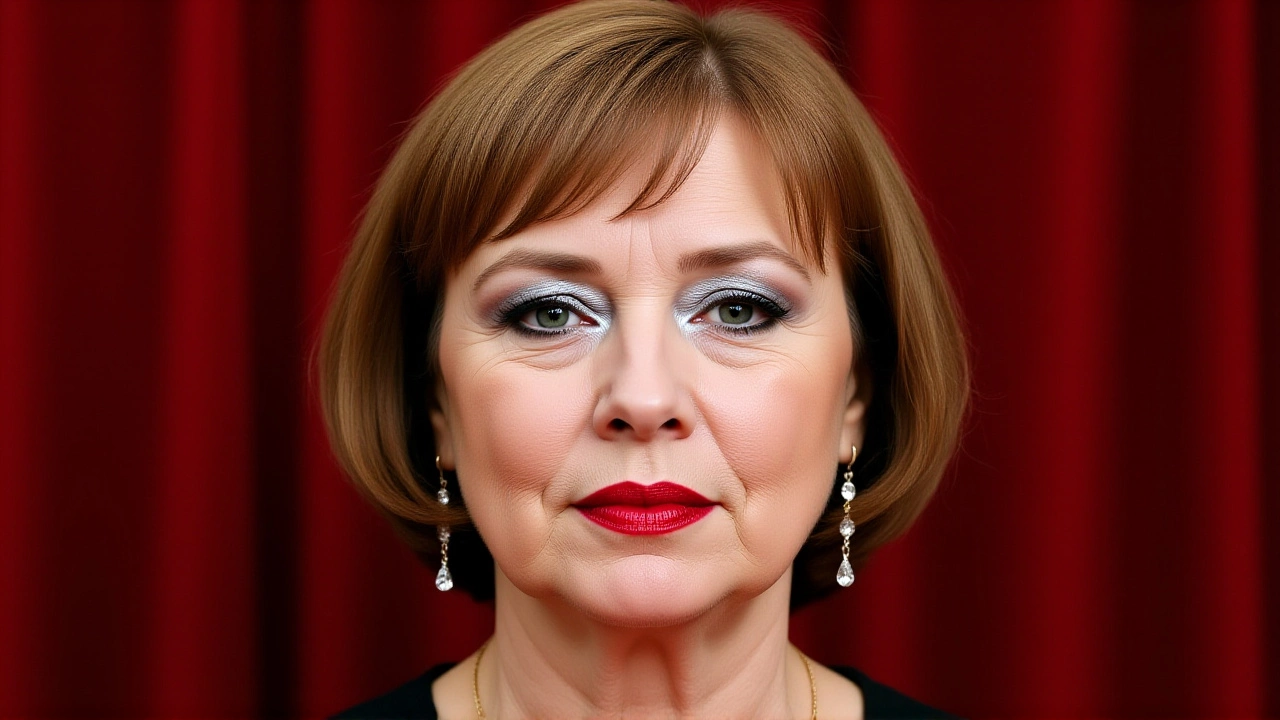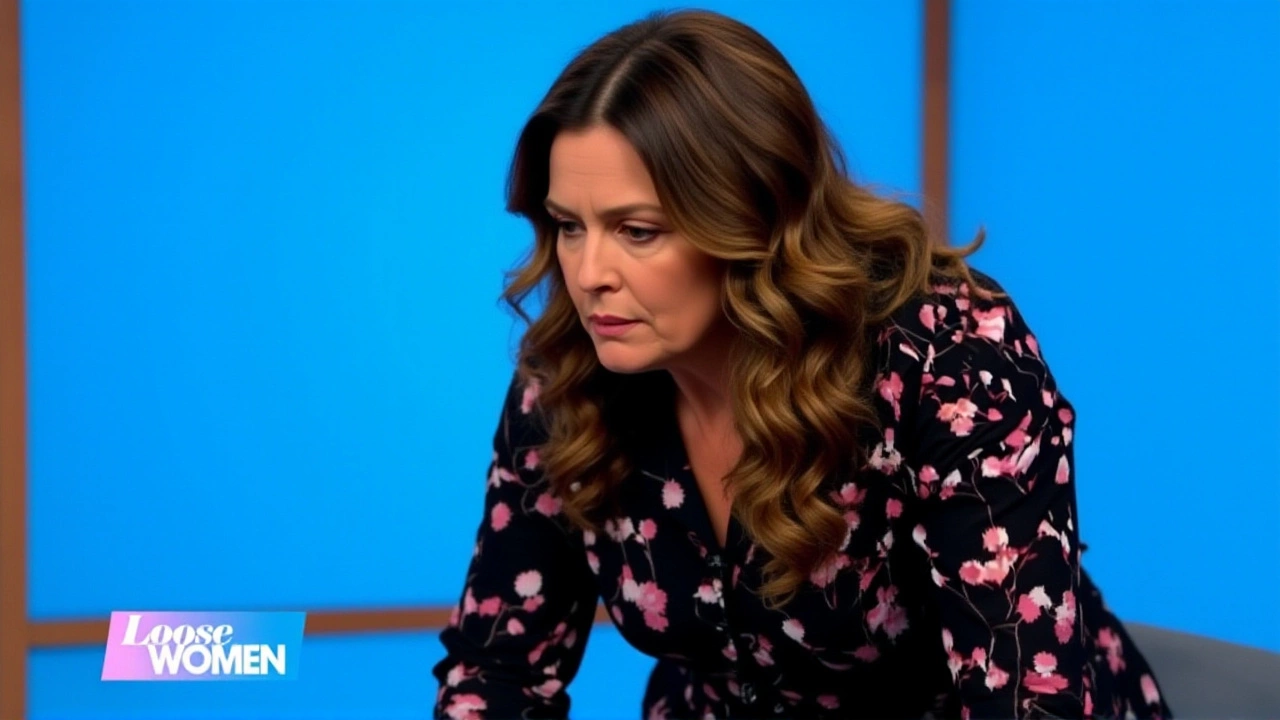When Pauline Quirke MBE, the beloved British actress best known for her role as Sharon in Birds of a Feather, stepped away from public life in January 2025, it wasn’t just the end of a career — it was the quiet, heartbreaking start of a new chapter defined by love, not loss. Her husband, Steve Sheen, made the announcement on January 21, 2025, revealing that Quirke had been living with dementia since 2021. What made this moment different wasn’t the diagnosis itself — it was how the family chose to respond: with honesty, humor, and a mission to change how society sees dementia.
A Diagnosis That Crept In Slowly
It began in November 2020. Quirke, then preparing for a new role, called Sheen one day and said simply: "The words are not going in." That moment, small and ordinary on the surface, was the first crack in a quiet storm. For the next two years, the family thought it was stress, fatigue, aging. "It’s so gradual," Sheen told BBC Breakfast on November 17, 2024. "You’re thinking, ah, she’s alright." But by 2023, the signs were undeniable. Lines still wouldn’t stick. Names slipped. The spark in her eyes, though still bright, began to flicker under the weight of something invisible.Still Funny. Still Herself.
What struck everyone who spoke about Quirke wasn’t the decline — it was the continuity. "She’s still funny," Sheen said. "She’s talking. She’s happy." Their son, Charlie Quirke, 31, described his mother as "still the funniest person I know in the world." He added: "My mum knows exactly who we are. Every time she sees all of us, she smiles, laughs, says 'I love you', says 'hello'." That’s the paradox of dementia: the mind forgets, but the heart remembers. Quirke may not recall every script she’s read or every stage she’s stood on, but she remembers her family. And in that, she’s still Pauline Quirke — the woman who built a career on warmth, wit, and the kind of emotional truth that only great comedy can capture.
A Fundraiser With Meaning
In December 2024, Charlie Quirke began a 140-kilometer walk across the United Kingdom, stopping at places that defined his mother’s life: her childhood home, her first audition spot, and most poignantly, the headquarters of the Pauline Quirke Academy of Performing Arts (PQA), which she co-founded with Sheen in 2007. The academy, which trains young people in acting, singing, and dance across 30+ UK locations, became more than a business — it became a legacy. "We’re not doing this for pity," Charlie said during the BBC interview. "We’re doing it because we want people to know dementia doesn’t erase love. It changes how you give it — but not that you give it at all."The Bigger Picture: Why This Matters
The family’s decision to go public — not in a tabloid, but on national television and through a formal statement — carries weight. Alzheimer's Research UK, the London-based charity leading the fight against dementia, called the move "brave." Chief Executive Hilary Evans-Newton said: "One in two people will be directly affected by dementia — either by developing it, caring for someone with it, or both. If nothing changes." Right now, over 944,000 people in the UK live with dementia. That number is expected to rise to over 1.6 million by 2040. Yet funding for research remains critically low. The charity has spent £200 million since 2005 — a fraction of what’s needed to find treatments that delay, prevent, or cure the disease. Pauline Quirke’s MBE, awarded in the late Queen’s final Birthday Honours, recognized her decades of work with youth. Now, her family is turning her private struggle into public purpose. The PQA has pledged to dedicate a portion of its 2025 fundraising to Alzheimer’s Research UK. Sheen added: "We are deeply grateful for the support of her peers, the public and the dedicated staff and Principals at PQA."
What’s Next?
The family has asked for privacy. No more interviews. No more public appearances. Pauline Quirke, now 66, is focusing on quiet moments — walks in the garden, listening to old music, laughing with her grandchildren. But her impact is far from over. Her story is already shifting conversations. In schools, teachers are using her case to explain dementia to children. In care homes, staff are rethinking how they communicate with patients who still know love, even if they’ve forgotten names. And in research labs, scientists are reminded that behind every statistic is a woman who made millions laugh — and still knows how to smile.Frequently Asked Questions
How common is early-onset dementia in performers like Pauline Quirke?
While dementia is most common in people over 65, early-onset cases — diagnosed before 65 — affect around 42,000 people in the UK. There’s no proven link between performing arts careers and dementia risk, but stress, sleep disruption, and age-related cognitive decline can compound vulnerability. Quirke’s case highlights that dementia doesn’t discriminate by profession — it can strike anyone, even those who seem vibrant and active.
What role does public disclosure play in dementia awareness?
When public figures like Pauline Quirke share their diagnosis, it dismantles stigma. A 2023 Alzheimer’s Research UK survey found 68% of people felt uncomfortable discussing dementia with loved ones — until they saw someone they admired speak openly. Her story encourages others to seek diagnosis earlier, reducing the average 2.5-year delay in diagnosis that currently exists across the UK.
How is the Pauline Quirke Academy responding to her diagnosis?
The Pauline Quirke Academy has launched a new initiative called "Memory in Motion," integrating dementia education into its youth curriculum. Students now learn how to interact with people living with dementia through theater exercises and interviews with caregivers. The academy also plans to dedicate 10% of its 2025 profits to Alzheimer’s Research UK — a direct tribute to Quirke’s legacy.
What are the current treatment options for someone in Pauline Quirke’s stage of dementia?
There are no cures, but medications like donepezil and memantine can help manage symptoms in mild to moderate stages. Non-pharmacological approaches — music therapy, structured routines, social engagement — are often more effective at preserving quality of life. Quirke’s ability to recognize family and retain emotional connection suggests she’s in a stable phase, where these supportive strategies make the biggest difference.
Why did the family wait until 2025 to make the diagnosis public?
The family waited until Pauline’s professional commitments ended naturally. They didn’t want her diagnosis to overshadow her work or force premature retirement. By announcing her retirement in January 2025 — after her final public appearance on BBC Breakfast in November 2024 — they ensured her legacy was defined by her art, not her illness. It was a deliberate, compassionate choice.
How can the public support Alzheimer’s Research UK after this announcement?
Donations, volunteering, and participating in fundraising events like Charlie Quirke’s walk help fund clinical trials. In 2024, the charity launched the UK Dementia Research Institute’s new £150 million program targeting early detection through blood tests. Public support directly accelerates these breakthroughs. You can also advocate for dementia-friendly communities — something Quirke’s story is already inspiring across schools and theatres nationwide.
